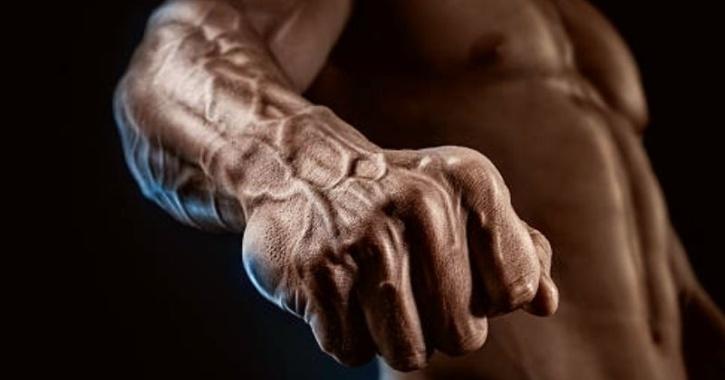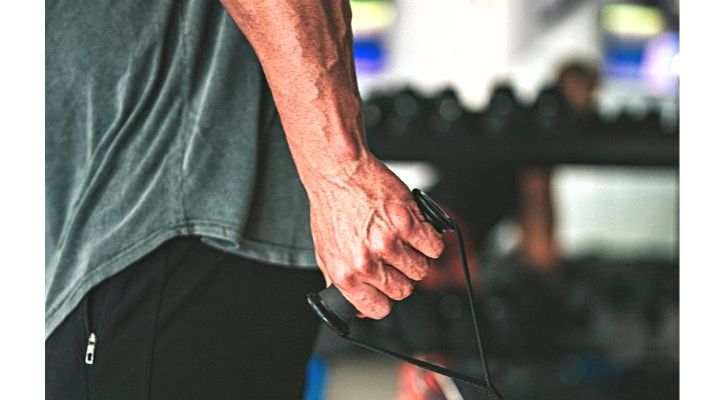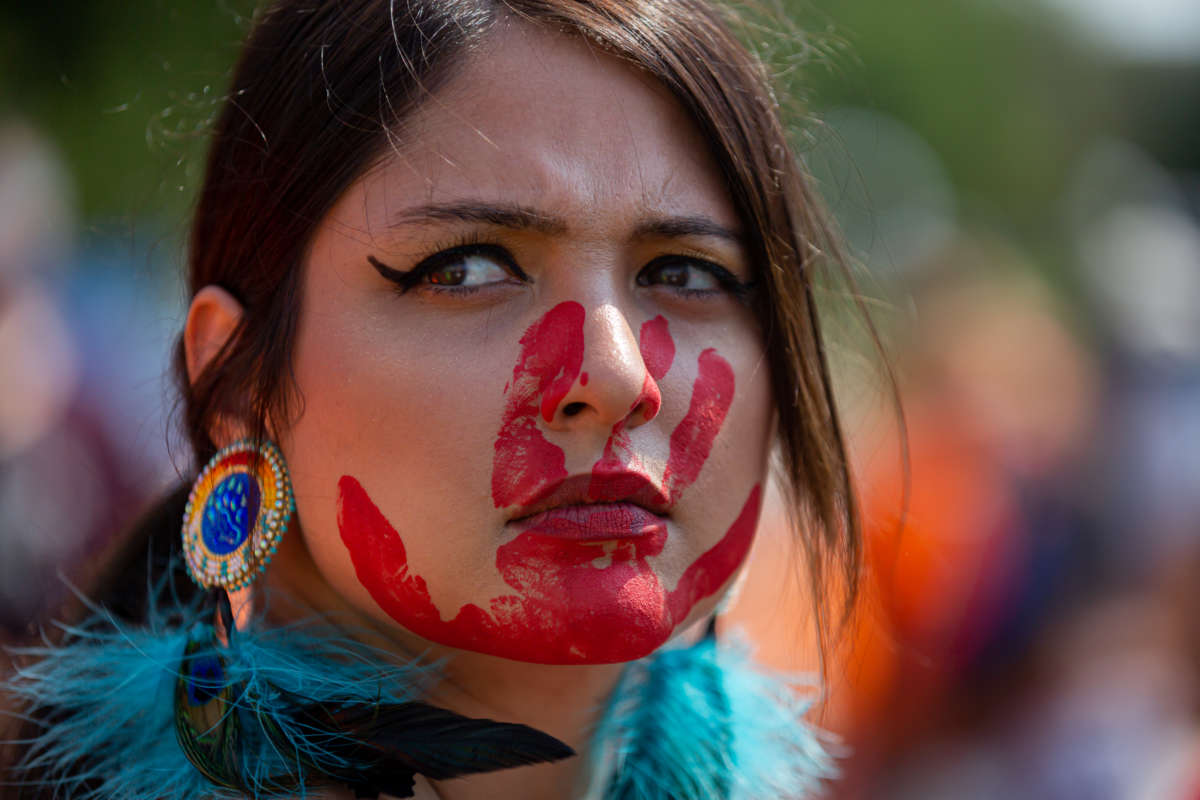For the second time in a week, Liberal Leader Justin Trudeau has had a campaign event disrupted by protesters shouting obscenities, uttering death threats against the prime minister and hurling racist and misogynist insults at people of colour and women in his protective detail.
While making a stump speech to promote his party's climate change policies in Cambridge, Ont., Sunday morning, the Liberals were forced to delay Trudeau's appearance for an hour because of the disruptions.
Signs brandished by angry protesters displayed slogans such as "Who benefits from the lock down?" and the "Liberals ruined the country," with one protester shouting through a megaphone decked out with the name; "InfoWars," a U.S.-based far-right conspiracy theory website.
When the event did start, it was disrupted by honking horns and foul and threatening language hurled from a crowd of people -- almost all of whom were unmasked and were not maintaining physical distance from one another.
Asked if he felt he could continue to hold campaign events safely, Trudeau said his message on climate change and vaccination was not one he would walk away from.
"No, I'm not going to back down on a message that Canadians know is the right path forward, and that's why Canadians need to choose to move Canada forward in this pivotal time," Trudeau said.
CBC News was present when a protester shouted a racist remark at a police officer of colour on Trudeau's protective detail, while another protester was heard making misogynist remarks to a female police officer on the detail.
"First of all, I want to thank the police officers, local and national, who do an amazing job in both keeping people safe and allowing Canadians to express themselves," Trudeau said. "That is what an election is all about. We may disagree with them, and of course, we will always condemn violence and hatred."
"This needs to make us ever more convinced of the importance of the choice in this election. Do we fall into division and hatred and racism and violence, or do we say no."
On Sunday, the Conservative Party tweeted: "The threatening images and behaviour are disgusting. This needs to stop immediately. Canada is better than this."
Watch: Protesters disrupt Trudeau campaign event shouting threats, obscenities:
An angry crowd of protesters delayed a campaign stop for Liberal Leader Justin Trudeau in Ontario, days after a rally was cancelled over security concerns. Disagreements on the campaign trail aren’t uncommon, but political watchers say these events have reached a new level of nastiness. Trudeau has been dogged by protesters at many of his campaign events. He was forced to cancel a campaign event in Bolton, Ont., Friday night when hundreds of angry protesters showed up at the Liberals' outdoor rally.
Among the protesters of Friday were anti-vaccination activists who shouted vulgarities at Liberal volunteers and carried anti-Trudeau signs and flags scrawled with obscenities. The crowd was frustrated with Trudeau's push to make vaccines mandatory in some settings and his support for provincial vaccine passports to restrict entry into some non-essential businesses.
Video footage from the event shows a handful of people with blue Conservative-branded T-shirts among the unmasked crowd assembled for the protest, which also included a strong contingent of people angry over the federal government's ban on flavours in smoking cessation devices, such as e-cigarettes.
Conservatives ban protesters from volunteering
In response to the behaviour, Conservative candidate Kyle Seeback said that the volunteers from his campaign who attended the protest are no longer welcome on his campaign team.
"My campaign has zero-tolerance for obscenities or threatening behaviour against any candidate," Seeback said.
Speaking at an event in Fredericton on Saturday, Conservative Leader Erin O'Toole said he is trying to run a positive campaign, and he "strongly condemns any form of harassment" on the campaign trail.
"We should be having a healthy and respectful debate. We have no time for people who bring negativity to campaigning. I urge everyone to put the country and our democracy first — let's have a positive debate of ideas on the future. That's my approach, and that's my expectation for every single member of our team," he said.
"I expect professionalism, I expect respect. I respect my opponents."
On Sunday evening, O'Toole issued a news release stating that anyone who does not support his party's plan to tackle climate change would not be welcome in the caucus.
"If there are candidates who don't support it — or any other part of Canada's Recovery Plan — they won't be sitting in the caucus of a future Conservative government," he said.
The statement came just hours after Trudeau called out O'Toole during an event in Cambridge, Ont. for, in his words, not doing enough to condemn "conspiracy theories" from an incumbent Tory candidate.
At a campaign event in Saint-Hyacinthe, Que., earlier in the day, O'Toole was repeatedly pressed about an undated flyer that longtime MP Cheryl Gallant sent before the election to constituents in the eastern Ontario riding of Renfrew–Nipissing–Pembroke.
In the materials, she suggested federal Liberals would pursue a "climate lockdown" and said her constituents should make the upcoming election "a referendum on more lockdowns."
Tories need to crack down on conspiracy theories: Trudeau
Gallant also released a video in June in which she asked: "How long do you think it will take for the Trudeau Liberals to start calling for a climate lockdown?"
Liberals shared a screenshot of Gallant's flyer online Sunday, prompting the Conservative Party to allege that the Liberals have candidates who support "9/11 truther conspiracies."
In a tweet, the party highlighted a 2011 tweet from Toronto Centre Liberal incumbent Marci Ien, in which she said "Loose Change 9-11: An American Coup," a 9/11 conspiracy theory documentary, "really makes you think about what really happened on September 11, 2001."
The tweet came to light in the Toronto Centre byelection last October. Ien, a former journalist, tweeted at the time: "I've spoken often with the families of 9/11 victims and shared their stories as a broadcaster — and I'll also do everything I can as an MP… to help keep Canadians safe from all such tragedies."
O'Toole wouldn't tell reporters if he found Gallant's comments acceptable and instead pivoted to promoting his platform, which includes a plan to fight climate change.
"We're running on a plan to get our country back on its feet, not on things that happened months or years ago," he said.
Shortly after O'Toole's statement was released threatening to turf people from caucus if they didn't support the Conservative climate plan, Gallant tweeted that she is proud to run on the Conservatives' recovery plan platform "in its entirety."
Conservative campaign spokesperson Cory Hann said party officials spoke with Gallant Sunday about the views she expressed in the video and that she removed them as a result of that conversation. Gallant posted the tweet after the party asked her to publicly confirm her support for the party platform, he said.
Asked about Gallant earlier Sunday, Trudeau said it was "extremely disappointing" to see elected politicians "peddle in conspiracy theories."
"It's not enough for leaders like Erin O'Toole to simply distance themselves from those comments. He has to flat-out condemn them and then correct the record," he said.
Drawing a link to the aggressive protests outside of his event, Trudeau said the Conservative leader can help people "shouting out here today" understand they are misinformed on matters such as climate change and vaccines.
"We know they don't listen to me. Perhaps they will listen to Erin O'Toole," he said. "That's the choice that Erin O'Toole needs to make right now around Cheryl Gallant and all of these conspiracy theories being peddled."

















